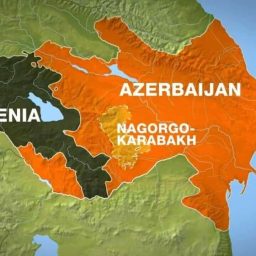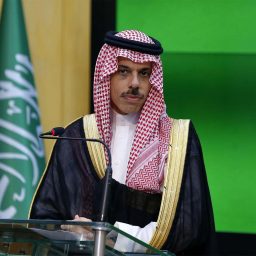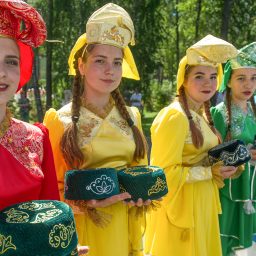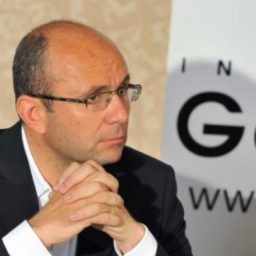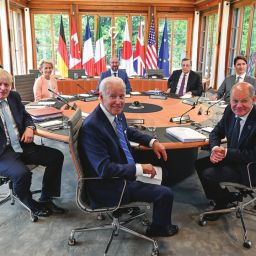The Kingdom Of Saudi Arabia
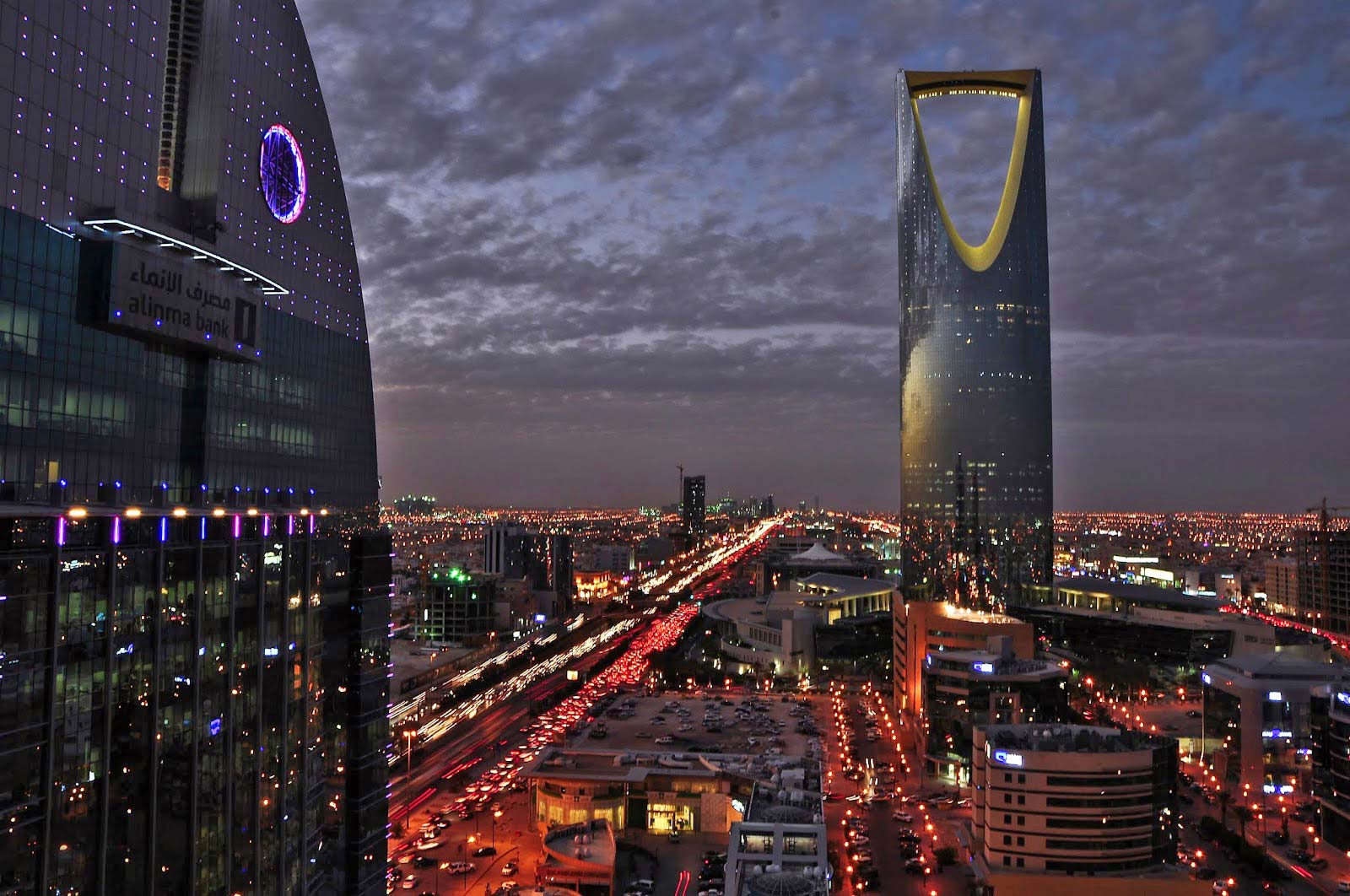
Saudi Arabia, officially known as the Kingdom of Saudi Arabia, is one of the major players in the Arab and Muslim worlds, based on reputation as the protector of the birthplace of Islam and one of the major oil producer. Established in September 1932, the Saudi Arabian Kingdom has invested its vast financial resources in recent years on several economic developments, diversification and upgrade initiatives. Saudi Arabia has attracted international attention to the momentum of its socio-economic transformation under the auspices of the Vision 2030 Development Plan. This article analyses the country profile of Saudi Arabia in terms of Society, Economy and Governance.
Saudi Arabia is a sparsely populated Middle East Kingdom that stretches through much of the northern and central parts of the Arabian Peninsula. Saudi Arabia is known as a country with a rich history and a young country as 50 per cent of its 33.4 million residents are youngsters under the age of 25.
Saudi Arabia, with an area of 2.24 million square kilometres (864,869 square miles), borders Jordan and Iraq to the north, Kuwait to the north-east, Qatar, Bahrain and the United Arab Emirates to the east, Oman to the south-east and Yemen to the south. It is separated from Egypt and Israel by the Gulf of Aqaba. It is the only nation with both the coast of the Red Sea and the coast of the Persian Gulf, and much of its land consists of arid deserts, lowlands and mountains.There are three climate zones in the Kingdom of Saudi Arabia: desert almost everywhere, steppe in the western Highlands, and a small region of hot and moderate temperatures, with long summers, in the Highlands just north of Yemen.
In the western Highlands, near the Red Sea, lies Hejaz, the birthplace of Islam and the location of the two holy cities of worship, Mecca and Medina. An area known as Najd lies in the geographical heart of the Kingdom of Saudi Arabia, a vast arid area that until recently had been inhabited by nomadic tribes. In the east, along the Persian Gulf, are the oil fields, which have made Saudi Arabia synonymous with oil riches since the 1960s. Such three elements — religion, tribalism, and infinite wealth — have powered the subsequent development of the Kingdom.
Riyadh is the capital of Saudi Arabia. The city Riyadh is named for the natural beauty of its location at the juncture of Wadis of Hanifah and Al Batha, and the City lights from a plane in the air are stunning.
With the emergence of the Al Saud family — the Najdi party and its gradual consolidation of power in the early 20th century, Saudi Arabia started to acknowledge the characteristics of a modern nation, and the pace of life increased rapidly. The Al Saud Family maintains a monopoly on political influence. Saudi Arabia was established in 1932 by King Abd-al-Aziz, and his numerous sons succeeded him. King Salman bin Abdulaziz al-Saud rose to the throne in January 2015 after the death of his half-brother, King Abdullah. He has been part of the ruling party of princes for decades and had continued the main thrusts of Saudi policy-including establishing an alliance with the United States and working for the stability of the oil market. In what is known as a shake-up, King Salman made his son Mohammed bin Salman the first in line to the throne in June 2017.
Prince Mohammed controls all major policy levers from the defence to the economy, and he has also positioned himself to be a reformer in the conservative Kingdom of Saudi Arabia with a series of bold steps, including the decision to allow women to drive.
Society and Culture
In Saudi Arabia, culture is typically traditional, collective, and conservative. The majority of Saudis (approximately 85-90 per cent) are Sunni Muslims the rest are Shiaa, mostly living in the North-Eastern Province. Saudi Arabia has instituted a rigid legal definition of Islam and strict gender segregation in government and education. Particular dress code imposed on women in public spaces. The official committee – known locally as The Haia or the Committee for the Promotion of the Virtue and Prevention of Sin – appointed by the government monitors the public adherence to religious values.
The Ministry of Culture and Information shall nominate all newspaper editors-in-chief and may fire them unless they comply with the rules and regulations. The Ministry also regulates radio and television. The government-owned Saudi Press Agency (SPA) is reporting official news and providing information.
The official holidays in the country are Id al-Fitr (marking the end of Ramadan, the fasting month for Muslims) and Id al-Adha (Feast of Sacrifice, coinciding with the pilgrimage season). The official language is Arabic. English used as a second language in schools, banks, health care, industry, and private sectors.
The steady influx of pilgrims to Mecca and Medina has also provided the nation with international contacts. However, Saudi Arabian rising oil wealth has led to massive and rapid investment in infrastructure in the Kingdom, which reflected in the lives of its people. Interaction with the outside world has also grown with advances in travel, technology and education. Increased oil wealth in the Kingdom has contributed to crucial improvements in educational, social and economic aspects. New methods of production have been superimposed on traditional society by the influx of millions of foreign workers into the country and by the recruitment of hundreds of thousands of Saudis in non-traditional occupations.
The Saudi population is estimated to be 34.17 million in 2020. According to 2019 figures, non-Saudi (expatriates) make up 38.3 per cent of the total population. Arabic is the official language of the country whilst Islam is the only religion of the residents (85-90 per cent of the population is Sunni, while 10-15% is Shia). In addition to Muslim expatriates, other communities (including East Orthodox, Protestants, Roman Catholics, Jews, Hindus, Buddhists and Sikhs) also live in Saudi Arabia.
Although the country has a large number of expatriates of different religions (more than 30 % of the population is expatriate), most of the general religious expressions that vary from the government definition of Sunni Islam is restricted.
Traditional sports in Saudi Arabia include camel racing that has been, and continues to be, very common across the country because the history of the Saudi is inseparable with the camels.
Currently, Football is the most popular national sport in Saudi Arabia. The Saudi Arabian Football Federation manages the Saudi Football Team and coordinates Saudi leagues and the King Cup Championship. The Saudi National Team participated five times in the FIFA World Cup (1994, 1998, 2002, 2006, and 2018). It also participated in the Asian Cup tournament ten times and won the title three times in 1984, 1988 and 1996. The Saudi Team was the runner-up of the Asian Cup champion in 1992, 2002 and 2006.
Economy
Saudi Arabia has an oil-based economy with tight government restrictions over main economic activities. It controls about 16 % of the world’s proven oil reserves, ranks as the largest exporter of petroleum, and plays a leading role in OPEC. The oil industry accounts for about 87 per cent of government revenues, 42 per cent of GDP, and 90 per cent of export earnings, according to the CIA World Factbook. Saudi Arabia is promoting the growth of the private sector to diversify its economy and to employ more Saudi people. Approximately 6 million foreign workers have a role to play in the Saudi economy, especially in the oil and service sectors; at the same time, however, Riyadh is struggling to reduce unemployment among its nationals.
In 2017, the Kingdom reported an estimated budget deficit of 8.3 per cent of GDP funded by bond sales and reserves. While the Kingdom has been able to manage the shortfall for many years by reducing its substantial foreign reserves or borrowing, it has cut its capital expenditure and reduced subsidies on energy, water and petroleum products. Also, Saudi Arabia recently imposed a 5% value-added tax. In January 2016, Crown Prince and Deputy Prime Minister MUHAMMAD BIN SALMAN revealed that Saudi Arabia plans to list the shares of its state-owned oil firm, ARAMCO – another attempt to increase revenue and outside investment. The government also looked more closely at privatization and diversification of the economy as a result of the declining oil market. Historically, Saudi Arabia has concentrated on diversification activities in the power generation, telecommunications, natural gas production, and petrochemical sectors.
Saudi Arabia is undergoing rapid reforms aimed at improving the country economic potential under the government initiative, Saudi Vision 2030 and the National Transformation Programme. The Kingdoms ambitious long-term economic and social blueprint for reducing its dependence on crude oil announced in 2016.
A National Transformation Program (NTP), initiated to acknowledge Vision 2030, an ambitious action program involving 24 government agencies. The NTP defined a range of main goals to be achieved by every government agency by 2020. Saudi Arabian NTP health program has set the sector on a steady path to privatization and growth in the coming years despite the challenges faced by COVID-19.
Governance
Saudi Arabia is an absolute monarchy, ruled by the Basic Law, but not by political parties, unions or some other form of political association. Basic governance structure – an alternative to the constitution – was developed in 1992, following numerous calls for democratic reform. The Basic Law of the Governance consists of 83 articles, all of which were drawn up by a distinct committee established by the King and the Minister of the Interior based on the Sharia law (Islamic law). The law names the Quran, the Muslim holy book, and the Sunnah, the Prophet’s teachings and deeds, as the crucial source of governance. There is no real division between the powers of the three government branches – the Legislative, the Executive, and the Judicial.
The King is the Head of Government, the Prime Minister, and the Supreme Commander. These roles incorporate legislative, administrative and judicial sectors. Royal Decrees shall have the power to overrule any judicial or administrative decision.
The royal family controls the government, and most of the superior roles in the country are family members. The totalitarian nature of the government prohibits all organizations without official approval or oversight. According to Article 5 of the Basic Law of Governance, the rulers of Saudi Arabia will be chosen, from among the sons of the founder, Ibn Saud (King Abdulaziz) and their descendants. The order of succession to the throne is of agnatic seniority. Since 2006, the Council of Allegiance (Hayat al-Baya), composed of the remaining sons of King Ibn Saud, his grandsons whose fathers are dead, disabled or unable to assume the throne, and the sons of the King, has agreed on the succession of the throne. The King carries the title of the Custodian of the Two Holy Mosques (Khadim al-Haramain al-Sharifain), in Mecca and Medina, which emphasizes the status of Saudi Arabia in the Islamic world.
By Jumana Jabeer



